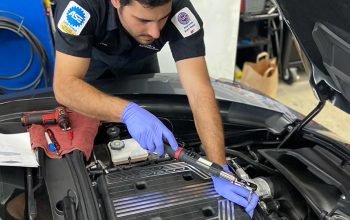When a fuse blows in your car’s electrical system, it signifies a critical issue: an overload of current. This could stem from a faulty component, a short circuit, or excessive demand on a particular circuit. A blown fuse immediately cuts off power to the affected system. For example, a blown fuse might disable your headlights, preventing you from driving safely at night. It could also knock out your air conditioning, making journeys unbearable in hot weather. The radio, power windows, or even the engine’s vital sensors can also be affected. Ignoring a blown fuse and simply replacing it without diagnosing the underlying problem can lead to repeated failures and potentially more serious electrical damage.
Localized Component Malfunction:
The most immediate and obvious consequence of a blown fuse is the failure of the specific component it protects. Each fuse is dedicated to a particular circuit, whether it’s the headlights, the power windows, the radio, or the air conditioning. When the fuse blows, that circuit is cut off, and the corresponding component ceases to function. This could mean suddenly losing your headlights on a dark road, being unable to lower a window, or having your radio unexpectedly shut off.
Domino Effect Through Related Systems:
A seemingly isolated blown fuse can have surprisingly widespread consequences due to interlinked electrical circuits in modern vehicles. Imagine a fuse designed to safeguard the instrument cluster – it might also regulate the fuel gauge, warning lights, and even part of the infotainment system. When this single fuse fails, the impact isn’t limited to just one component. Suddenly, the instrument panel might display inaccurate or no data, obscuring crucial details about your car’s condition like fuel level, engine temperature, and oil pressure. The absence of warning lights could mask developing problems, increasing the risk of more serious mechanical failures down the line. This lack of real-time feedback can make informed driving decisions difficult, potentially leading to breakdowns or even safety hazards. Therefore, prompt attention to a blown fuse is vital for preventing compounding issues. There comes the use of the Auto Repair in Bremen, IN based services.
Potential for Electrical Shorts and Fire Hazards:
While fuses are designed to prevent major electrical damage, a continuously blowing fuse can signal a more serious underlying problem, such as a short circuit. If a short circuit exists, replacing the blown fuse without addressing the root cause is likely to result in the new fuse blowing as well. Ignoring this issue can create a dangerous situation, potentially leading to overheating wires and, in extreme cases, a fire hazard. It’s essential to diagnose and repair the short circuit to prevent further damage and ensure safety.
Diagnostic Challenges and Increased Repair Costs:
Identifying the cause of a blown fuse can sometimes be a diagnostic challenge. While a visual inspection might reveal a clearly blown fuse, determining the reason behind the failure often requires further investigation. A mechanic may need to trace the circuit, check for shorts, or test individual components to pinpoint the source of the problem. This diagnostic process can add to the overall repair costs compared to simply replacing a fuse. Furthermore, neglecting the issue can lead to more extensive damage, ultimately increasing the repair bill.




